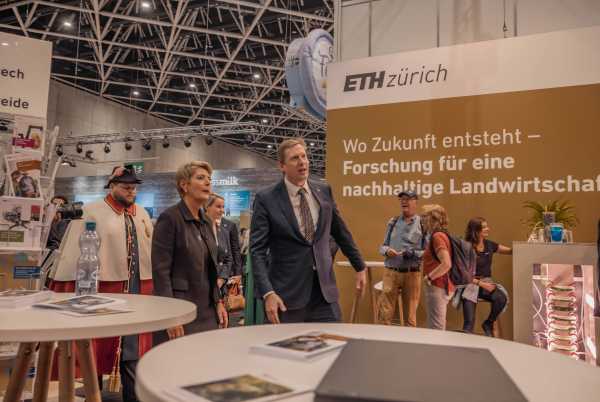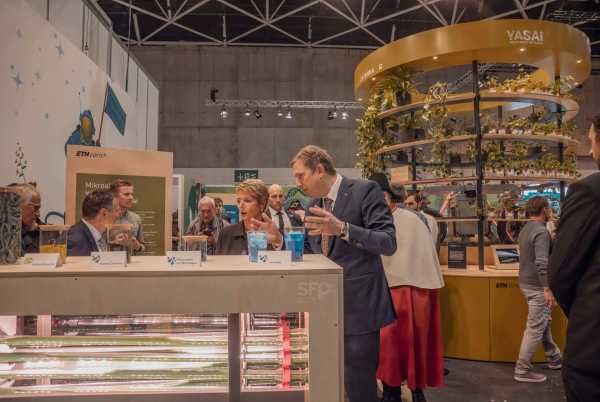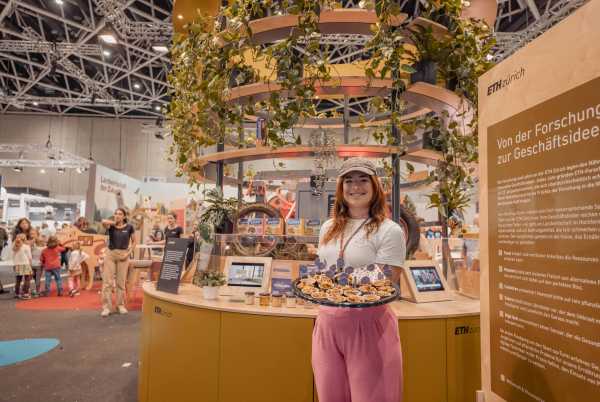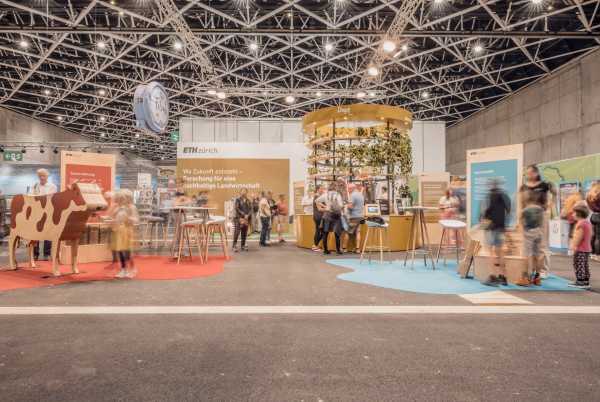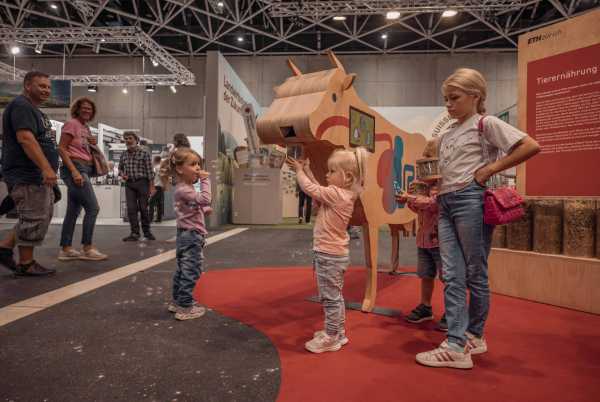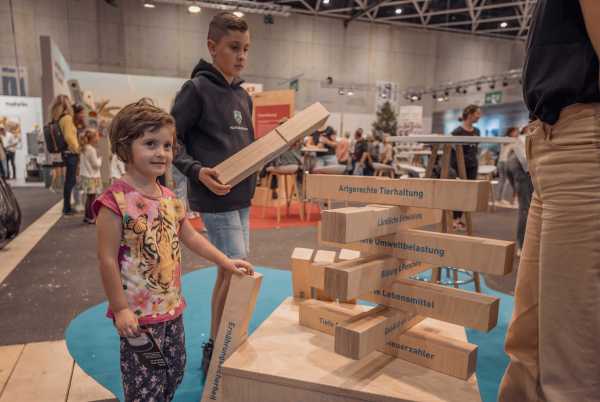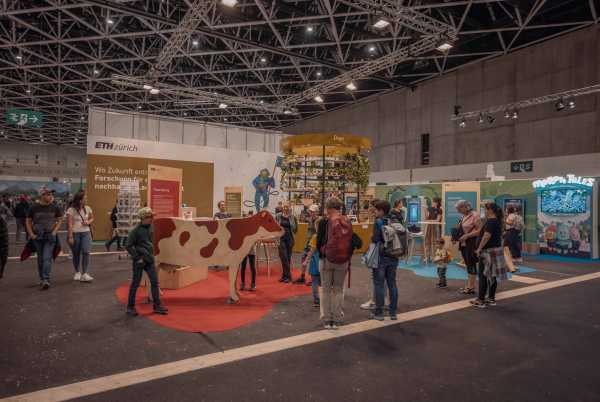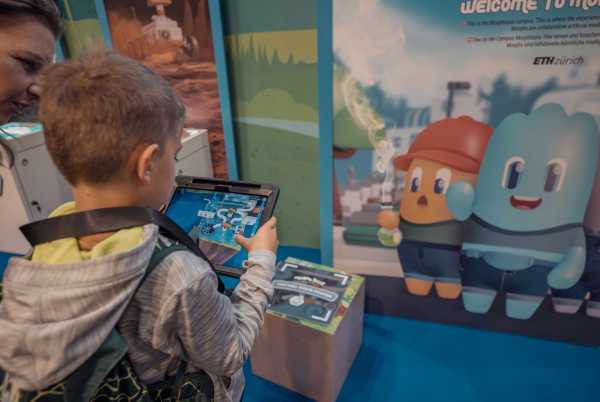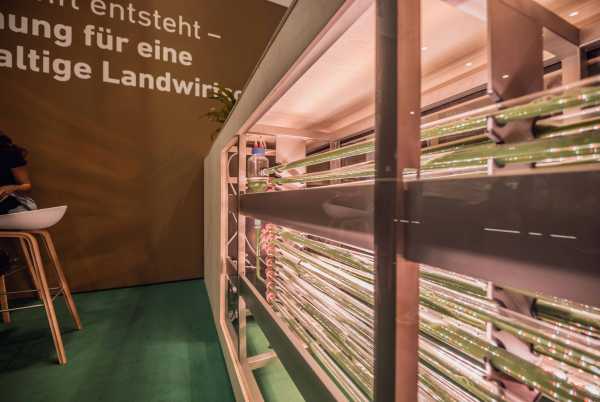“Olma offers ETH Zurich a key opportunity to show an interested audience how our research in food and agricultural sciences is producing real innovations and products that are of direct benefit to Swiss business and society,” stressed the ETH Vice President.
Keller-Sutter noted approvingly: “In this way, ETH spin-offs not only create highly qualified jobs but also make major contributions to food security in Switzerland and worldwide.”
Highlight: Microalgae – a food of the future
One attraction is the algae reactor, which ETH researchers are using to investigate the cultivation and production of microalgae as food.
Microalgae have great potential: they are rich in high-quality proteins, unsaturated fatty acids, minerals and vitamins. They also need little space, grow quickly and can utilise leftovers from food production.
“Despite these qualities, microalgae are still relatively little established in the food industry, partly due to the lack of suitable processes,” says Wolfrum.
Finding access through play
Three interactive games also await visitors at the family-friendly ETH booth – the “Ruminant Simulator”, “Agricultural Policy Jenga” and “Morph Tales – Discovering Artificial Intelligence (AI)”.
The first two introduce fundamental research questions for animal nutrition and agricultural sciences – Jenga even makes agricultural policy fun for children. Morph Tales conveys to teenagers and adults the potential of AI and robotics for modern agriculture and other applications.

